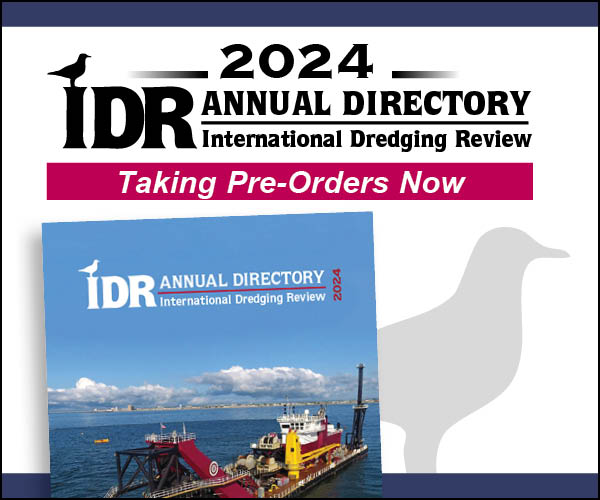Tracking Dredging Contracts
While the U.S. dredging industry is trying to hold its own we are watching the industry boom around the world. In this issue we've added stories about overseas contracts to our regular Contract Award feature rather than scattering them throughout the magazine.
Government contracting information in the United States is in the public domain grouped for easy access on a government web site. Our Contract Award announcements are very bare-bones with just the salient facts noted about projects which are mostly maintenance dredging contracts.
Since there is no centralized source of contract information for the rest of the world our reporting on that front is from announcements after the fact by companies winning the contracts and they come with quite a bit of detail about the project and the equipment to be used. Grouping all these reports together should give an overview of dredging activity around the world though lack of space and research time leave many contracts out.
Our Hydrographic Surveying feature in this issue coincides with the Canadian Hydrographic Conference in Victoria B.C. It is likely that the companies featured in our special section will be attending that meeting and readers will be able to view their equipment and other equipment at first hand.
Hydrographic survey meetings always have an aura of relaxation and letting down – probably because they are always held where there is some good water and a convenient dock where the survey boats can tie up. It's a known fact that we feel better around water because of the negative ions in the air and I hope the folks at the meeting in Victoria enjoy their sojourn there for this reason.
Next will be the Texas A&M and WEDA meetings in St. Louis in June which promise good technical papers and an interesting field trip to a quarry where a shoot of a rock face will be timed for our visit. I have seen this before and it is interesting to see this aspect of the aggregate industry which is different than dredging and requires somewhat different processing equipment.
I received a statement from the Association of Equipment Manufacturers (AEM) which represents off-road equipment manufacturing and which has dredge manufacturers and suppliers as members.
In recent years U.S. waterways and land-based infrastructure alike have suffered as a result of inadequate funding and issues affecting the maintenance of our roads are of interest to the dredging industry.
In the statement the AEM calls unproductive a suggestion by one of the presidential candidates that we eliminate the gas user fee this summer as an economic stimulus measure. They give the following reasons:
o Eliminating the federal gas tax would further delay badly needed road and bridge repairs and improvements. An estimated $9 billion dollars would be lost ($7 billion for highway improvements and $2 billion for transit).
o Removing the federal user fee even temporarily will have a ripple effect on state and local governments as they match federal spending to make local surface transportation improvements.
o The proposal would also have a ripple effect on employment. It is estimated that more than 310000 American jobs related to federal highway/transit investments would be at risk.
o Federal user fees have not been raised since 1993 and therefore have not been a factor in the increase in fuel prices.
o If the "gas tax holiday" was enacted drivers would spend even more of their summer holiday stuck in congested traffic.
Thoughts to put with the myriad other political issues we are facing this summer.
Judith Powers
Editor



